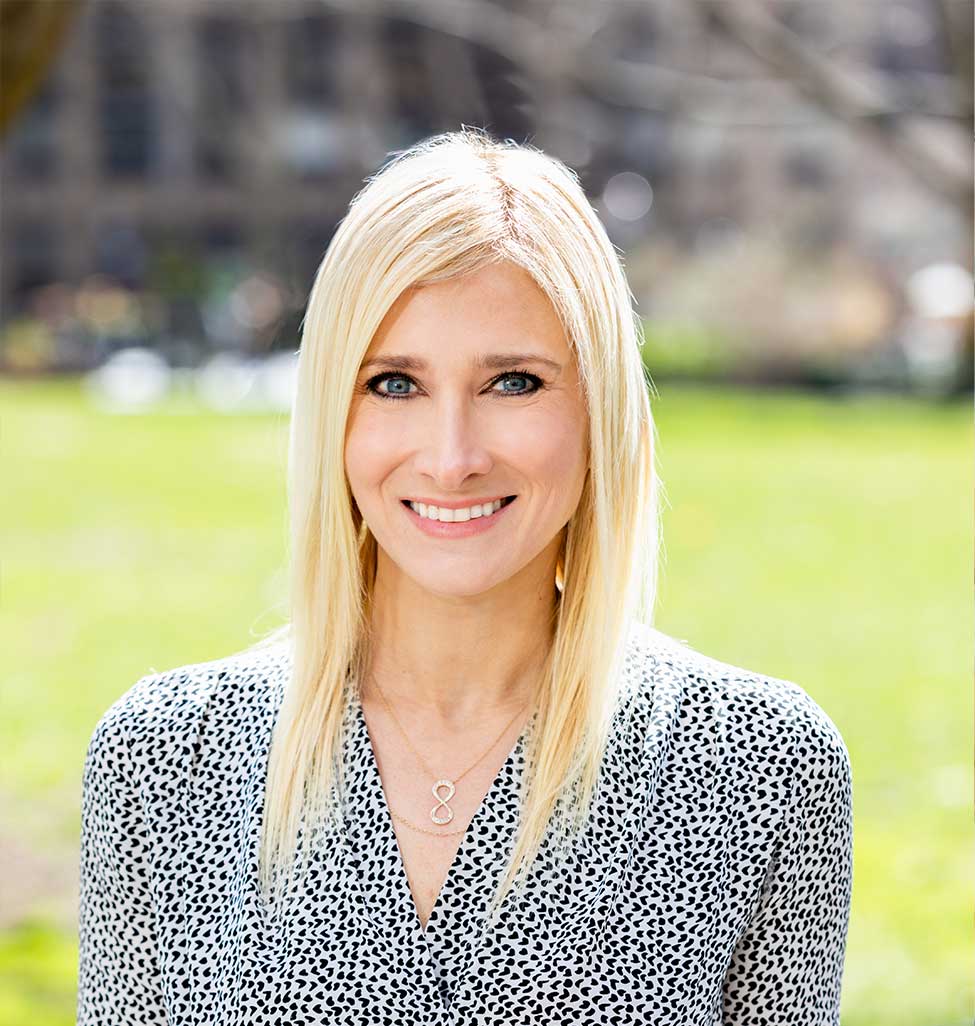About Integrative Psychotherapy
Virtually, or in-office, we’re here for you.

Telehealth Therapy to help you no matter where you are.
Integrative Psychotherapy is a predominantly Telehealth based practice, licensed to treat patients in both New York and California.

In person psychotherapy sessions in Manhattan, NY
In-Person sessions are available upon request in Manhattan’s Nomad District. The office is located at 245 Fifth Avenue, Manhattan, New York.
What makes us different?
We provide an integrative approach to psychotherapy by combining knowledge of Western and Eastern philosophies that treat the whole person.

Licensed in the state of New York & California
The therapist behind the practice
Cheryl Hochberger, LCSW
Cheryl Hochberger, LCSW received a Master’s in Social Work from Columbia University where she was trained in Psychodynamic Psychotherapy. She received Post-Graduate training in Eating Disorders, Compulsions, and Addictions from the William Alanson White Institute. Prior to that Cheryl earned a Bachelor’s of Science degree from New York University’s Stern School of Business.
Additionally, Cheryl completed training at the renowned Institute for Integrative Nutrition where she was trained as a Wellness Coach. Cheryl has certification from Columbia Teacher’s College and the American Association of Drugless Practitioners. Cheryl also studied food therapy and culinary education at Natural Gourmet Institute for Health and Wellness in New York City.
Before starting a private psychotherapy practice, Cheryl practiced at Kennedy Counseling and Wellness on the Upper West Side as an eating disorder specialist. Cheryl completed her Clinical Internship at Long Island University working as a psychotherapist to college students. Prior to that she saw private clients with emotional eating issues the holistic wellness coaching practice she began in 2006.
Cheryl’s passion for the healing arts began as a means of healing herself and ultimately extended to healing others. She works specifically with patients who suffer from Eating Disorders such as Anorexia, Bulimia, Binge Eating Disorder, and Emotional Eating, as well as those with Food Sensitivities. She addresses eating disorders and emotional eating from a holistic perspective, taking into account the emotional, mental, physical and spiritual root causes of illness, including medical issues that may have contributed to the client’s feeling of losing control.
Cheryl’s extensive post-graduate training in Psychodynamic Psychotherapy draws upon childhood experiences and trauma that may have resulted in adolescent and adult mental health issues such as anxiety, depression, obsessive-compulsive disorders, or other psychological struggles. Cheryl also uses Mindfulness techniques to help her patients tune in to their hunger and fullness and establish mindful eating practices. She also draws on Cognitive Behavioral techniques to help patient’s shift their self-destructive behavioral patterns and establish healthy practices. In addition she explores existential psychological factors that occasionally leaves patient’s feeling lost in life.
Cheryl believes that the need to eat emotionally is simply the body’s attempt to take care of itself and fill a void; whether it is in the area of career, relationships, finances, spirituality, or life purpose. She recognizes that emotional eaters are usually extremely food-sensitive and suffer from hidden food allergies and intolerances. Healing happens when her clients begin to understand where their issues are coming from, no longer blaming themselves or feeling shame or guilt. In time, they discover a sense of control over their mind and body and a mastery over their lives. Their love for themselves then radiates out to all that surround them, improving their lives and the lives of those around them dramatically.
Cheryl suffered from an eating disorder for 10 years. In her mid-twenties she was diagnosed with Celiac Disease, an intolerance to gluten, the protein found in wheat, rye, barley. As a result of her own challenges with nutrition, Cheryl understands the issues her clients are dealing with first-hand and is able to get to the root of the problem. She recognizes that although eating disorders have a psychologically component, most also coexist with gastrointestinal issues and/or other medical problems such diabetes or metabolic disorders.
Cheryl also owns a directory of alternative health practitioners and businesses called The Healing Directory. In her downtime, she is working on creative endeavors and spending time with loved ones. She appreciates the arts, film, music, and singing. She loves nature and enjoys hiking, swimming, and skiing. She practices mind-body exercise such as pilates and meditation. She also enjoys spiritual films and books. She embraces life and appreciates all the love and beauty that surrounds her.
What we do
We specialize in eating disorders, compulsions, addictions, family counseling, lifestyle issues, and holistic wellness.
- Eating Disorders
- Anxiety & Depressive Disorders
- Mood Disorders
- Sexual Dysfunction & Gender Dysphoria
- Family Therapy & Couples Counseling
- Holistic Wellness Couseling
Eating Disorders

Eating Disorders are characterized by a continuous disruption of eating behaviors that significantly impact physical health or psychological functioning. There are various diagnoses within the eating disorders category that consist of different sets of behaviors.
- Anorexia
- Bulimia
- Binge Eating Disorder
- Body Image Issues
Anxiety & Depressive Disorders

Anxiety and Depressive Disorders are characterized by a change in how we think, feel, and behave. They may cause physical symptoms, such as sweating, trembling, dizziness, heart palpitations, chest pain, and difficulty breathing.
- Generalized Anxiety Disorder
- Major Depressive Disorder Bulimia
- Trauma and Stress Related Disorders
- Obsessive Compulsive Disorder
Mood Disorders

Mood disorders include serious changes in mood that may be so strong that they interfere with a person’s ability to work, study, sleep, or eat. These disorders are different from the normal ups and downs that everyone experiences from time to time.
- Bipolar 1 & 2
- Attention Deficit/Hyperactivity Disorder
Sexual Dysfunction & Gender Dysphoria

Sexual dysfunction and gender dysphoria are two separate but related conditions. Sexual dysfunction refers to a problem with sexual desire or performance, while gender dysphoria is a condition in which a person experiences discomfort or distress due to their biological sex not matching their gender identity.
- Sexual Dysfunctions
- Gender Dysphoria
Family Therapy & Couples Counseling

Family Therapy explores the patterns that develop in familial relationships and the way each member of a family system impacts the others. Family therapy may require the participation of one’s significant other, parent, or siblings.
- Family Therapy
- Couples Counseling
Holistic Wellness Counseling

Holistic Wellness Counseling is an integrative approach to therapy that accounts for emotional, physical, mental, and spiritual factors that affect mental and physical well being.
- Emotional
- Mental
- Spiritual
- Physical
Client Testimonials
What our clients say

Eugene F.
“Cheryl really took the time to understand my background and habits to discover the root cause of my behaviors. She was never judgmental, was willing to listen, and …”

Kelly C.
"Cheryl is an incredible therapist. Extremely attentive, insightful, and honest, she listens and provides useful feedback that helps me manage my emotions…"

Melissa M.
“I am grateful for Cheryl’s help in overcoming my anxiety and depression. During our sessions she not only listened to me without judgment, but also…”
Names have been altered to protect patient identities.
Still have questions? Call us.
Frequently Asked Questions
Where will I meet with my therapist?
The practice has shifted to mostly Telehealth appointments with limited availability for in person office visits upon request. Telehealth sessions will be conducted via video chat or phone call. In person appointments can be requested at the Flatiron office located at 245 Fifth Avenue, 3rd Floor. Telehealth and In-Person Office Hours are Monday – Friday 8am – 9pm EST.
What should I prepare before my first psychotherapy session?
Patients should fill out all the required online forms via the patient portal, which the patients will be given access to prior to the scheduled intake appointment.
What can I expect from my first psychotherapy session?
The first appointment generally takes about an hour. Sessions thereafter are forty-five minutes. The initial intake session covers health and family history, current symptoms and goals for therapy. Once an initial intake session is conducted, the therapist will evaluate the patient’s symptoms and create a treatment plan for each individual. The patient should expect to gain clarity on their diagnosis and their prognosis for therapy.
What are the goals of psychotherapeutic treatment?
The goals of treatment are to develop greater self-awareness and understanding of one’s cognitive and behavioral patterns, so the individual may make positive changes in their lives. Therapy will address all aspects of an individual’s life that contribute to their personal well being including: self esteem, family and personal relationship dynamics, romantic relationships, and career direction. Holistic psychotherapy will do this by addressing the emotional, physical, mental, and spiritual causes of psychological disorders.
I’ve never been to therapy, what should I expect from psychotherapy sessions?
One should develop an awareness of maladaptive cognitive and behavioral patterns, and learn to break these patterns and develop a metaphoric mental tool kit to shift to thoughts and behaviors that are healthy. These tools can help patients eliminate compulsions and addictions that wreak havoc in their lives. Patients may experience transformative changes in their lives that will reduce stress and enhance their well being such as: elevated self confidence, clarity of purpose and life direction, improved relationships, and increased motivation.
How long should I expect my psychotherapeutic treatment to last?
The length of treatment is based on the initial treatment plan and generally involves weekly or biweekly treatment for a period of time, which will be determined by therapist and patient. The length of treatment depends on the severity of symptoms and the speed at which an individual is able to implement psychotherapeutic changes.
Is psychotherapy completely confidential?
All sessions are confidential. Confidentiality protects a patient’s privacy and allows an individual to share person information freely and openly. A patient’s psychotherapeutic record is confidential and protected by law except in instances where a patient may be considered a danger to themselves or someone else, or in rare instances where a court may subpoena patient records for testimony. The practice will never share a patient’s privileged health information without written consent by the patient.
How do I know if Cheryl Hochberger, LCSW is the right therapist for me?
Cheryl offers a free fifteen-minute consultation call to determine if the therapist and patient are a good fit to work together.
Does the practice accept Health Insurance?
Cheryl Hochberger, LCSW is an out of network provider. This means that she charges a session fee upfront and then patients with out of network insurance benefits may submit for reimbursement from their insurance company. Most insurance companies do offer some out of network benefits and cover anywhere from fifty to one hundred percent of the session fee.
How do I get reimbursed for sessions with the practice?
Cheryl Hochberger, LCSW provides a monthly reimbursement form via email. The reimbursement form simply needs to be printed out and sent directly to the claims address on the back of the patient’s insurance card.
What questions should I ask my health insurance company in order to figure out if I have out network benefits?
A patient should call the number on the back of the insurance card. If applicable, call the mental health or behavioral health phone number directly. Follow the phone prompts and make sure to choose the Benefits category and then ask to speak to a representative. Ask the representative exactly what out-of-network behavioral health or mental health benefits the patient has. Ask if there is a personal out-of-network deductible or family deductible, how much the dollar amount of the deductible is, and if either of those deductibles have been met or partially met. Then ask how much the insurance company will reimburse (usually a percentage of the insurance company’s allowable amount for a therapist visit) and the co-insurance amount that the patient will be responsible for.
How much will therapy cost?
Contact Us
